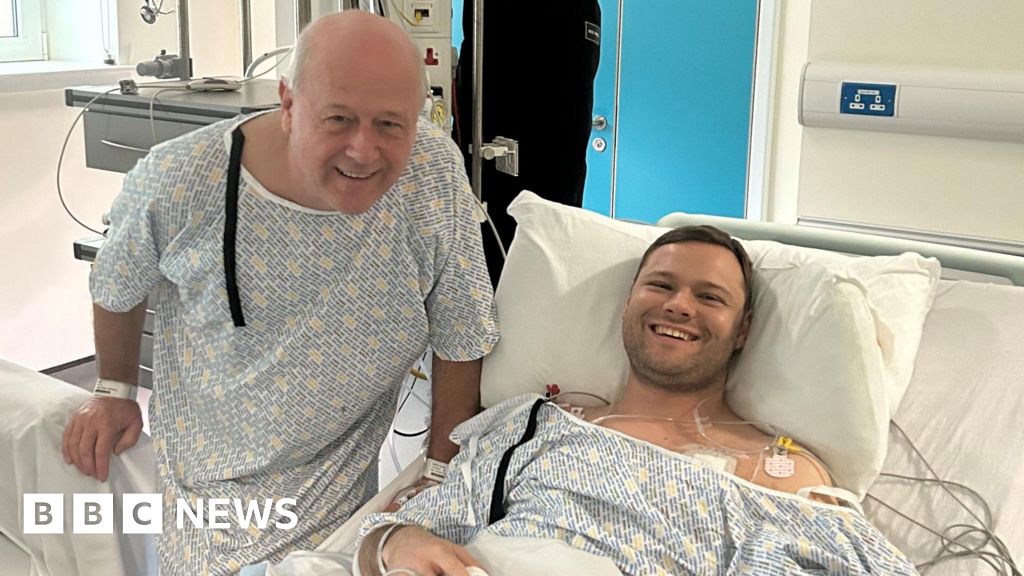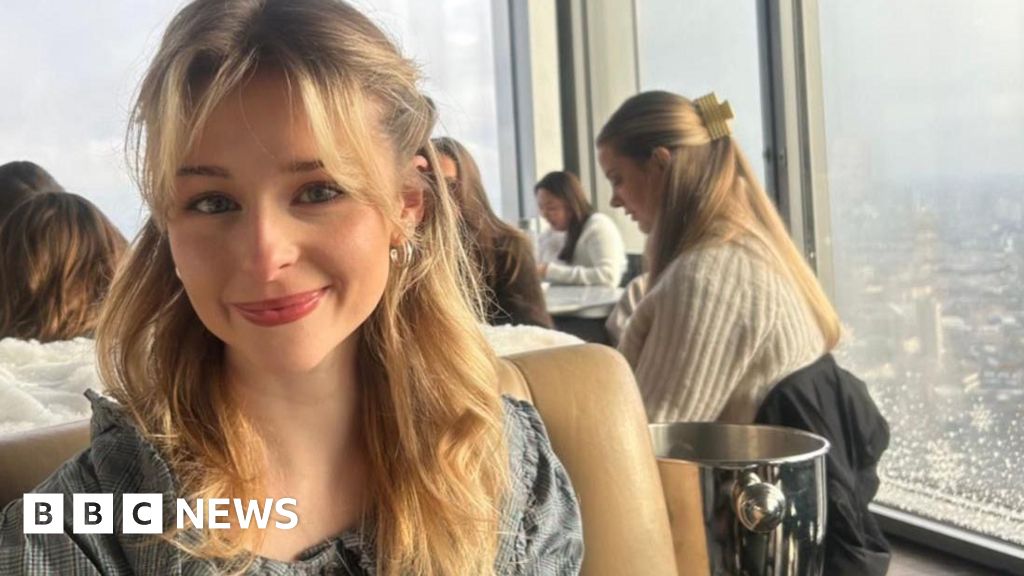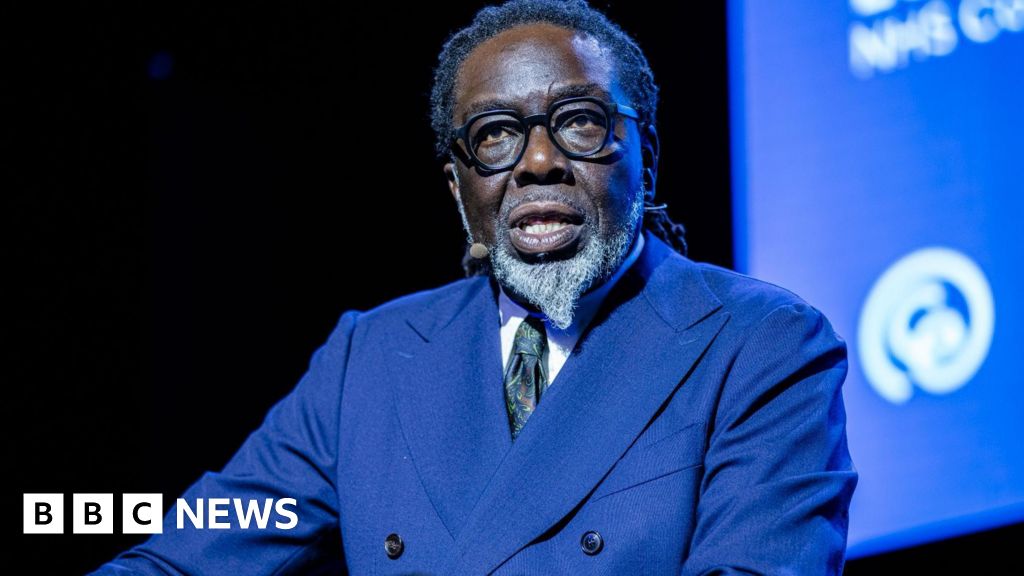ARTICLE AD BOX
Covid Inquiry: Hancock 'profoundly sorry for each death'
By Jim Reed and Michelle Roberts
BBC News
Ex-health secretary Matt Hancock has criticised the UK's pandemic planning ahead of Covid, saying it was too focused on dealing with deaths rather than averting them.
He told the Covid inquiry the focus was to plan for the consequences of a disaster: "Can we buy enough body bags, where are we going to bury the dead? That was completely wrong."
He said he was "profoundly sorry" for each death, but acknowledged that - for some - his apology would be "hard to take".
As Mr Hancock arrived at the inquiry, a widow showed him images of her husband, who died from Covid.
Lorelei King, 69, was holding two A4 posters, which she showed to the former health secretary as he stepped out of a black Jaguar.
One poster displayed an image of Mr Hancock with Mrs King's husband, Vincent Marzello, who died in a care home in March 2020, aged 72.
"You shook my husband's hand for your photo op," the photo was captioned.
Mr Hancock didn't respond as he walked in to the building.
Mrs King told journalists: "We would visit by FaceTime. I noticed something was wrong - his breathing wasn't quite right.
"At that time there wasn't any testing available, and he died five days later.
"Care homes became charnel houses because there was no testing, there was insufficient PPE, but, most disastrously, it's because they discharged people from hospitals without testing them."
She called on Mr Hancock to "tell the truth" to the inquiry, adding: "The bereaved families deserve that much."
Inside the inquiry, KC Hugo Keith asked Mr Hancock why, if he was so critical of the UK's approach to pandemic planning, was it not changed while he was health secretary.
Mr Hancock said: "The only answer I can give is because I was assured that we had the best system in place in the world.
"In hindsight, I wish I'd spent that short period of time [before the pandemic] changing the entire attitude to how we respond to a pandemic."
Mr Hancock was repeatedly asked about the recommendations from Exercise Cygnus, a three-day test run in October 2016 to find out how prepared the UK was for a influenza pandemic.
It concluded that the UK's plan were not sufficient to "cope with the extreme demands of a severe pandemic"
The Inquiry has seen evidence that only eight of the 22 recommendations made after that exercise had been fully addressed by the time Covid hit with work on the other 14, including to prepare the social care sector, still ongoing.
Mr Hancock said that some of that work had been paused because of the need to prepare the country for a no-deal Brexit.
But he said that he was "not convinced" that, even if all those recommendations had been addressed, the country would have been in a better place to deal with Covid.
He described Exercise Cygnes as "flawed in its central assumption" that a pandemic was a disaster that needed to be "cleaned up" rather than something that needed to be stopped or contained in the first place.
He said: "The doctrinal floor was the biggest by a long way because if we'd had a flu pandemic, we still would have had the problem of no plan in place for lockdown, no prep for how to do one, no work on what, how best to lock down with the least damage.
"I understand deeply the consequences of lockdown and the negative consequences for many, many people - many of which persist to this day."
What is the Covid Inquiry?
- It is about going through what happened and learning lessons
- No-one will be found guilty or innocent
- Any recommendations made do not have to be adopted by governments
- The inquiry has no formal deadline but is due to hold public hearings until 2026
- Scotland is holding a separate inquiry in addition to the wider UK one
Related Internet Links
The BBC is not responsible for the content of external sites.

 1 year ago
42
1 year ago
42








 English (US) ·
English (US) ·